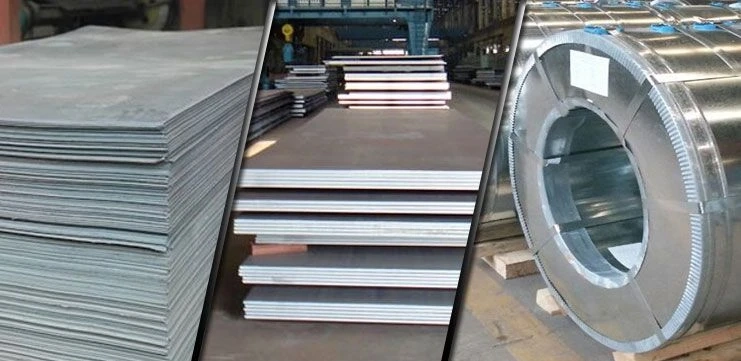Steel is often described as the backbone of modern civilization. From towering skyscrapers and bridges to automobiles and kitchen tools, steel finds its way into nearly every aspect of daily life. What makes steel so versatile is the ability to adjust its composition and treatment methods to create different grades and types. Understanding these variations—and how they are made—gives us a clearer picture of why steel continues to dominate as a material of choice across industries.
How Steel is Made
At its core, steel is an alloy of iron and carbon. The manufacturing process usually begins with iron ore, which is refined in a blast furnace or electric arc furnace. During this stage, impurities are removed, and the desired amount of carbon is added. Other elements such as manganese, chromium, nickel, or vanadium may also be introduced depending on the required properties.
Once the molten steel is produced, it can be cast into billets, slabs, or blooms. These semi-finished products are then rolled, forged, or heat-treated into final forms like bars, coils, or sheets. The final characteristics of the steel—whether it is soft and ductile or extremely hard and wear-resistant—are determined by both its chemical composition and the heat-treatment methods applied.
Types of Steel
1. Carbon Steel
Carbon steel is the most widely produced category, containing varying amounts of carbon (usually up to 2%). Depending on the carbon content, it can be classified as low, medium, or high carbon steel.
- Low Carbon Steel: Also known as mild steel, this type is easy to weld and shape. It is used in structural applications and everyday items.
- Medium Carbon Steel: Stronger than mild steel and commonly used for gears, axles, and machinery.
- High Carbon Steel: Known for its hardness and wear resistance, it is used in cutting tools, blades, and springs.
Producers around the world, including leading carbon steel producers, supply these grades to industries such as construction, automotive, and energy.
2. Spring Steel
Spring steel is a special type of steel known for its high yield strength, allowing it to return to its original shape after bending or twisting. A well-known grade is EN42J spring steel, which is used for making springs, saws, blades, and clutch plates. Its resilience and toughness make it invaluable in automotive and mechanical applications.
High-performance variants like high carbon spring steel strip are widely used in tension-driven parts, lock mechanisms, and tools that must resist constant stress while maintaining flexibility.
3. Special Medium Carbon Steels
Medium carbon steels are often heat-treated to improve strength and toughness. Certain grades have become highly popular among manufacturers:
- C55 Steel: With approximately 0.55% carbon, it offers a balance of toughness and hardness. Trusted C55 steel manufacturers supply this grade for use in automotive components, gears, shafts, and cutting tools.
- C80 Steel: With higher carbon content than C55, C80 steel provides greater hardness and wear resistance. Reliable C80 steel manufacturers deliver this material for products like springs, knives, and blades that demand strength under repeated use.
These specialized grades highlight the importance of precision in steel manufacturing, where even slight variations in carbon percentage can dramatically alter performance.
4. Alloy Steel
Alloy steels are made by adding other elements like chromium, nickel, or molybdenum to carbon steel. These additions enhance specific properties such as corrosion resistance, toughness, or heat resistance. Stainless steel, for example, is an alloy steel with chromium content that prevents rusting, making it indispensable in cutlery, medical instruments, and construction.
5. Tool Steel
Tool steels are designed to withstand high wear and temperatures. They are often alloyed with tungsten, vanadium, or cobalt to enhance their hardness. Used in drills, dies, and molds, tool steels provide the durability necessary for shaping and cutting other materials.
The Role of Manufacturers
Behind every type of steel are the producers who ensure quality and consistency. Carbon steel producers supply raw materials for industries worldwide, while specialized manufacturers deliver specific grades to meet technical demands. Companies such as C55 steel manufacturers and C80 steel manufacturers play a critical role in ensuring industries have access to durable and reliable materials. Similarly, suppliers of EN42J spring steel and high carbon spring steel strips help sectors like automotive, defense, and engineering maintain performance and innovation.
Conclusion
The different types of steel—carbon steel, spring steel, alloy steel, and tool steel—highlight just how versatile this material truly is. Each grade, from EN42J spring steel to specialized products from C55 steel manufacturers and C80 steel manufacturers, serves a unique purpose in industries that drive our modern lives. Whether in the form of high carbon spring steel strips or structural beams, steel remains a foundation for progress. Thanks to dedicated carbon steel producers and specialized suppliers, the world continues to benefit from one of the most essential materials ever created.



